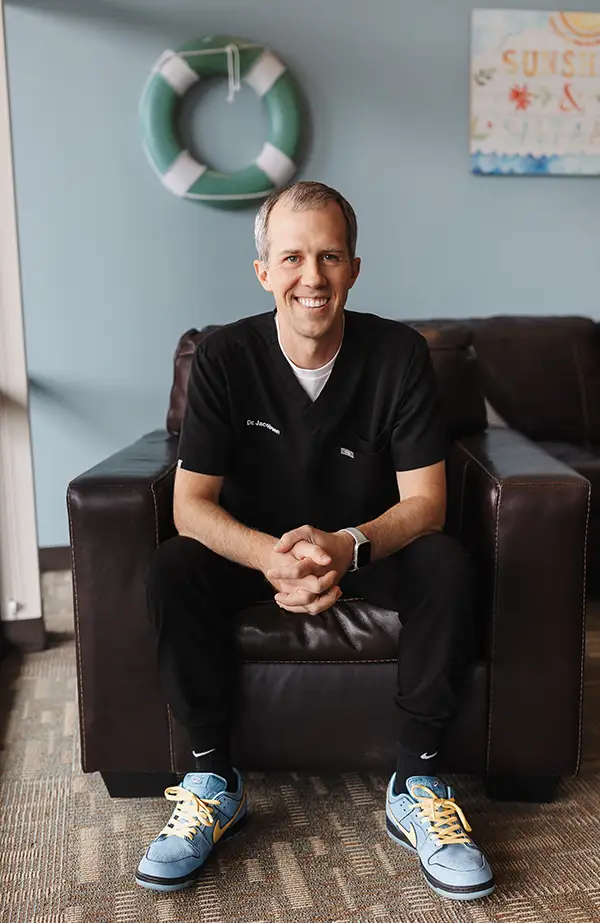Pediatric Dentist Oregon City, ORWe are specialists in every sense of the word. We specialize in providing quality dental care for infants, children, and adolescents, but to us it’s much more than that. We specialize in kids. We understand how they feel and what makes them tick. We share a connection with kids that not only helps them feel safe and comfortable, it also helps us be even better at what we do. From routine checkups and emergency care to fillings and sealants, our goal is to help your child feel safe, relaxed, and comfortable. We want to help make your child’s smile the best it can be. |
Meet The Doctor Dr. Eric Jacobsen loves working with kids. He has a deep understanding of children and takes extra steps to make them feel comfortable. A native Oregonian, growing up in Astoria, Dr. Jacobsen graduated from Brigham Young University before earning his DDS at the University of Maryland School of Dentistry. Following dental school, he completed an additional two years of training at Montefiore Medical Center/Albert Einstein College of Medicine in the Bronx, New York. During his final year he served as Chief Resident of the pediatric dental program. Dr. Jacobsen served as the pediatric dentist for the pediatric oncology survivorship clinic’s, KITE (Knowledge and Inspiration after Treatment Ends) program at Randall Children’s Hospital. Dr. Jacobsen is Board Certified and is a member of the American Dental Association, American Association of Pediatric Dentistry, Oregon Dental Association and Past President of the Clackamas County Dental Association. Dr. Jacobsen loves living in Oregon with his lovely wife and three amazing children! |
Services |
TestimonialsWe LOVE Dr. Jacobsen and his staff. I have been taking my kids to him for years now and we’ve always had the best experiences. They’ve always gone above and beyond to be welcoming and more importantly gentle with my kiddos. I can honestly say that they look forward to going to the dentist. We won’t go anywhere else! -Lauren VRead More |
Jacobsen Pediatric Dentistry19502 Molalla Ave. Suite 109 Oregon City, OR 97045-4513 |
 |